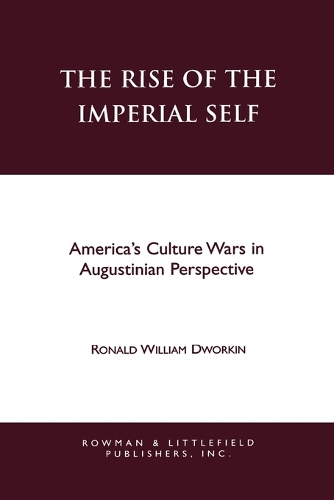
The Rise of the Imperial Self: America's Culture Wars in Augustinian Perspective
(Paperback)
Publishing Details
The Rise of the Imperial Self: America's Culture Wars in Augustinian Perspective
By (Author) Ronald W. Dworkin
Bloomsbury Publishing PLC
Rowman & Littlefield Publishers
28th June 1996
United States
Classifications
Tertiary Education
Non Fiction
Anthropology
306.0973
Physical Properties
Paperback
216
Width 150mm, Height 223mm, Spine 20mm
408g
Description
The Rise of the Imperial Self establishes a geneaology of aristocracy and places America firmly within an aristocratic tradition originally articulated by St. Augustine, but adapted to American society by Alexis de Tocqueville. Ronald W. Dworkin then traces the evolution of American culture from Tocqueville's America, when American aristocracy was defined by a love of something beyond the self to today's preoccupation with individuality, self-expression, autonomy, and self-esteemthe 'imperial self.'
Reviews
yields some starkingly original insights. . . . is plausible and obviously the product of considerable thought and erudition. * First Things *
This ambitious book finds a template for the "culture Wars " of contemporary America in the culture wars of late antiquity. Dworkin pursues his interesting thesis with creativity and with some success. -- Stuart Rosenbaum, Baylor University * Journal of Church and State *
An important contribution to the literature on the historical roots of expressive individualism. . . . the book has great breadth and depth and it covers a large intellectual territory. The book is especially useful for historians, philosophers and psychologists who are interested in the development and maintenance of the imperial self. -- Irene Switankowsky, University of Waterloo * Comptes Rendes *
A brilliant and illuminating interpretation of contemporary America and the recent great transformation in the American character. Dworkin employs both the political vision of Tocqueville and the religious vision of Saint Augustine to explain our nation and ourselves with extraordinary originality, depth, and wisdom. -- James Kurth, Swarthmore College
Author Bio
Ronald W. Dworkin is a fellow at the Institue for American Values and co-director of the Calvert Institute for Policy Research.
